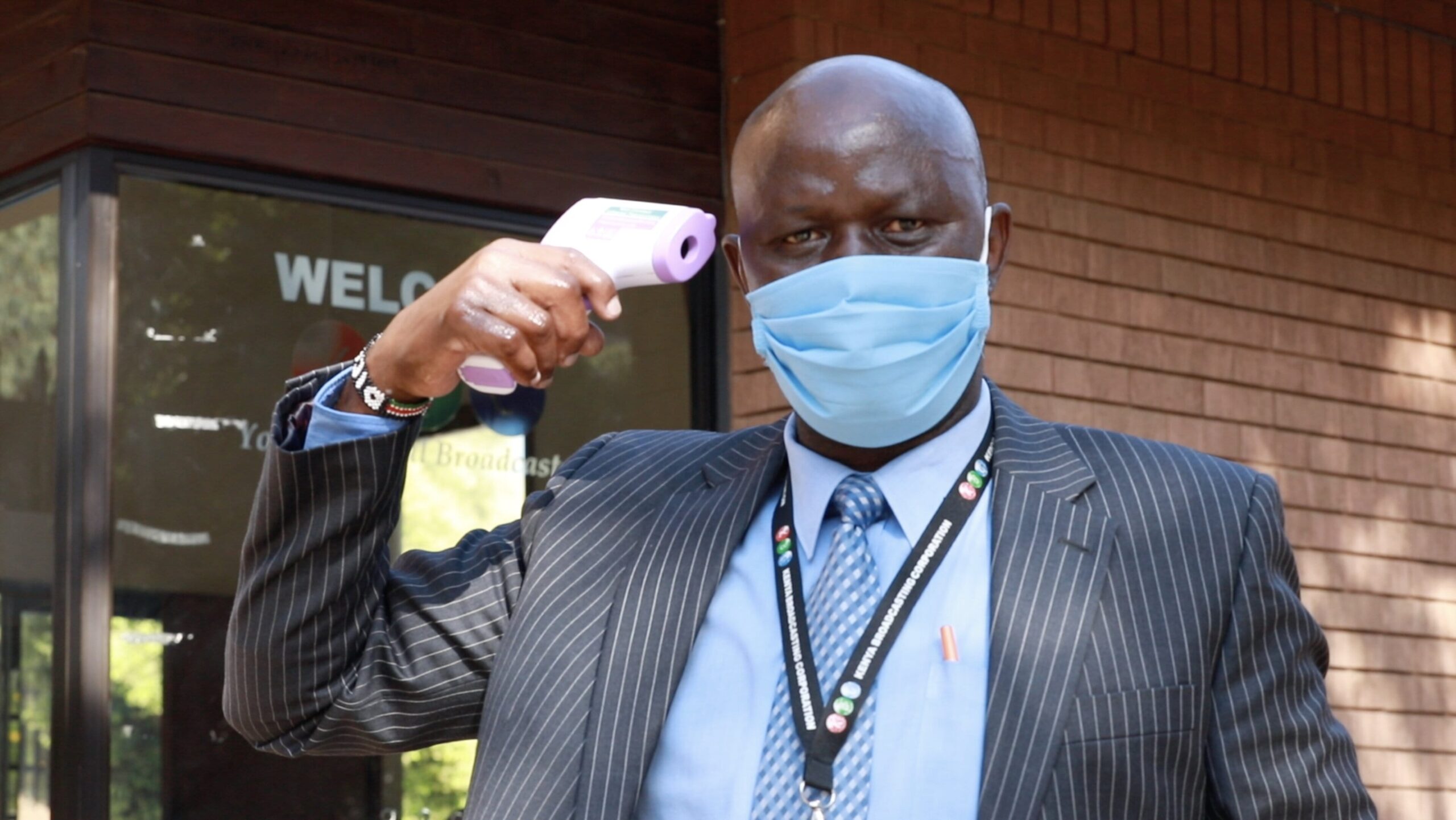
The unsung heroes in the fight against COVID-19
Every weekday morning, Dikence Ochieng leaves his home and heads to the offices of the Kenya Broadcasting Corporation where he works as a security guard.

Security officers have been on the job every day, without fail, since COVID-19 first arrived in Kenya. They are among the many unsung heroes of the pandemic.
Women and men like Ochieng are the first line of COVID-19 defense for many companies. They’re the ones making sure all the visitors and employees show no symptoms of infection before entering.
They’re entrusted with making sure others follow regulations laid down by various health authorities. They put their lives on the line to make sure thousands of others stay safe.
Ochieng says it is a tough balancing act interacting with the public in the face of an “unseen enemy” knowing very well that you can easily become the target.
The ministry of health in Kenya said that most of the COVID-19 patients are asymptomatic. Ochieng says this is a challenge because one cannot tell who has the virus and who does not.

“For me as a security officer, it is my responsibility to take precaution on an individual level because as the key person at the entry point, everybody (employees, clients, visitors) passing at the gate, they meet me first before they enter. So, for me to be safe, I have my own hand sanitizer at all times,” Ochieng says.
He adds that his organization has made it easier for him to work by providing the necessary tools for example face thermometers needed to scrutinize and get the body temperatures of all those who are entering the building.
Ochieng is considered essential personnel in Kenya. He doesn’t have the luxury of staying home and staying safe. He has to be on the job in order to earn a living.
“I have a family at home. I am married with five children and they are above 17 years. They are grown-ups but I must keep them safe as a father, as a holder of that family. I need to protect them.”
Ochieng says pulling off the balancing act of protecting and securing his workplace while protecting his family is challenging. But he’s accomplishing that task by adopting some of the same practices businesses use in protecting their employees.
He has stationed water points at the doorstep of his home and everyone must wash their hands with soap before entering.
Upon arriving home from work he heads straight to the bathroom, washes and changes his attire before mingling with his family.
“Another thing, apart from keeping physical distance and sanitizing in the public, I also eat well. I have to eat a balanced diet because we were told that this disease can work on you ruthlessly if your immune system is compromised,” he says.
Despite the fact that his children are above 17 years, he says he has to keep reminding them that COVID-19 is a deadly virus.
“They are grownups, I can’t police them every time, but I have laid down simple rules for them to follow while going on with their business in the public spaces.”
One of the people Ochieng is entrusted in protecting every day is Bonnie Musambi.
Bonnie Musambi is a radio presenter for an early morning radio show called “Zinga la Asubuhi” which is produced from the offices of KBC.

Like Ochieng, Musambi has been out working since COVID-19 was first detected in Kenya in March.
And while there are groups of journalists who are able to work from home, Musambi’s responsibilities as a host require frequent personal interaction with the public and co-workers.
“We are actually, endangered as journalists. Look at for example here in the studio, do not even go far, I use these headsets and the next presenter is also going to use them. I lay my hands on the turntable and the next presenter will do exactly the same, I use this microphone, we are here.”
His show is in Swahili, the language spoken mostly in East Africa. He says, during this pandemic, he has to always provoke his listeners by having debates surrounding the novel coronavirus.
This he adds, is to gauge their preparedness, their knowledge and whether they have adequate information regarding the pandemic
Musambi understands the public relies on the media for information that can help them stay safe. But just like Ochieng, Musambi has to delicately balance the responsibilities of his job with protecting his family.
“We normally have meetings in my house with my wife and children and we talk about the coronavirus,” he says. “The other day we made an agreement with my daughters about playing, we agreed with them that, they will not go out to play during this time. They will wait until this pandemic goes away. So, they got to know that this disease is dangerous.”






